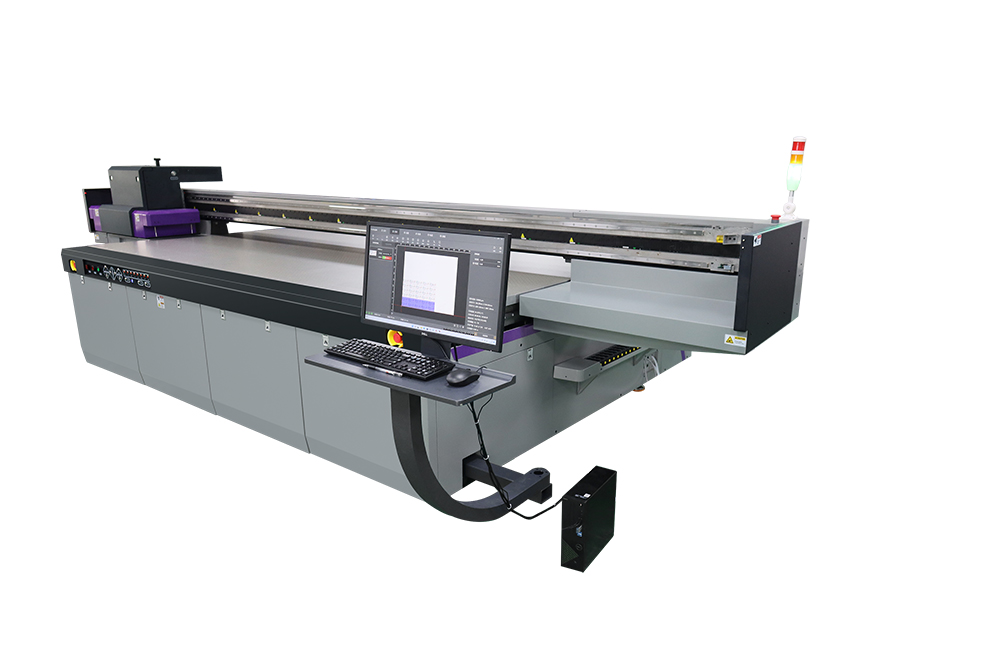UV Flatbed Printer: Printing on Dark Materials
In the dynamic world of printing technology, UV flatbed printers have emerged as game-changers, especially for applications involving dark materials. Traditionally, printing on dark substrates like black plastic, wood, or metal posed significant challenges due to color visibility and adhesion issues. However, UV flatbed printers offer innovative solutions that address these hurdles while delivering vibrant, durable results. This blog explores how these printers revolutionize dark-material printing and why they are a must-have for businesses seeking high-impact visuals.

The Challenge of Printing on Dark Materials
Printing on dark surfaces is inherently complex. Standard inks often fail to provide adequate contrast, resulting in washed-out designs that lose their visual appeal. Moreover, achieving proper adhesion on non-porous materials like plastics or metals requires specialized formulations. Traditional methods like screen printing or vinyl application can be time-consuming and costly, especially for short-run projects. UV flatbed printers address these challenges by combining advanced ink technology with precise printing capabilities, ensuring sharp, vivid images even on the darkest substrates.
UV Technology: A Breakthrough for Dark-Material Printing
UV (ultraviolet) flatbed printers utilize a unique curing process that sets them apart from conventional printers. Instead of relying on heat or solvent evaporation, UV inks harden instantly when exposed to ultraviolet light. This rapid curing enables several advantages:
Superior Adhesion: UV inks bond tightly to both porous and non-porous surfaces, including glass, metal, and plastics.
Vibrant Colors: The opaque nature of UV white ink allows for layering under CMYK colors, ensuring designs pop against dark backgrounds.
Durability: Printed materials resist fading, scratching, and chemical exposure, making them ideal for outdoor use.
These features make UV flatbed printers the go-to choice for industries like advertising, automotive, and interior design, where longevity and visual impact are critical.
White Ink: The Secret to Dark-Material Success
One of the standout capabilities of UV flatbed printers is their ability to print white ink. This feature is indispensable for dark-material applications, as it serves as a base layer that enhances color vibrancy. For instance, printing a red logo on black acrylic requires a white undercoat to prevent the red from appearing dull or muddy. UV printers apply this white layer with precision, ensuring seamless integration with subsequent color layers. The result? Crisp, eye-catching designs that command attention.
Versatility Across Industries
The applications of UV flatbed printers on dark materials are vast and varied:
Signage: Businesses can create bold, weather-resistant signs that stand out day and night.
Automotive: Custom vehicle wraps and interior accents benefit from UV printing’s durability and color accuracy.
Furniture: Designers can print intricate patterns on dark-stained wood or metal surfaces, adding a touch of luxury.
Promotional Items: From phone cases to USB drives, UV printing enables personalized branding on a wide range of materials.
This versatility makes UV flatbed printers an invaluable asset for businesses looking to differentiate themselves in competitive markets.
Environmental and Cost-Efficiency Benefits
Beyond their technical prowess, UV flatbed printers offer significant environmental and economic advantages:
Reduced Waste: Precise ink placement minimizes material usage, lowering production costs and environmental impact.
Energy Efficiency: UV curing consumes less energy compared to traditional drying methods, aligning with sustainability goals.
Quick Turnaround: Instant curing eliminates the need for drying time, enabling faster production cycles and reduced lead times.
These benefits make UV printing an attractive option for businesses aiming to balance innovation with responsibility.
Overcoming Common Misconceptions
Despite their advantages, UV flatbed printers are sometimes misunderstood. Here are a few myths debunked:
“UV Inks Are Toxic”: Modern UV inks are formulated to be eco-friendly, with low VOC (volatile organic compound) emissions.
“UV Printing Is Only for Large Projects”: While ideal for high-volume production, UV printers also excel at short-run and custom orders, thanks to their flexibility and speed.
“UV Printers Are Expensive”: While initial investment may be higher, long-term savings from reduced waste, faster production, and superior durability often outweigh the costs.
Conclusion
UV flatbed printers have redefined the possibilities of printing on dark materials, offering businesses unmatched versatility, quality, and efficiency. From vibrant signage to durable automotive wraps, these machines empower creators to bring their visions to life with precision and impact. As technology continues to evolve, UV printing will likely remain at the forefront of innovation, driving new applications and inspiring fresh design possibilities.
